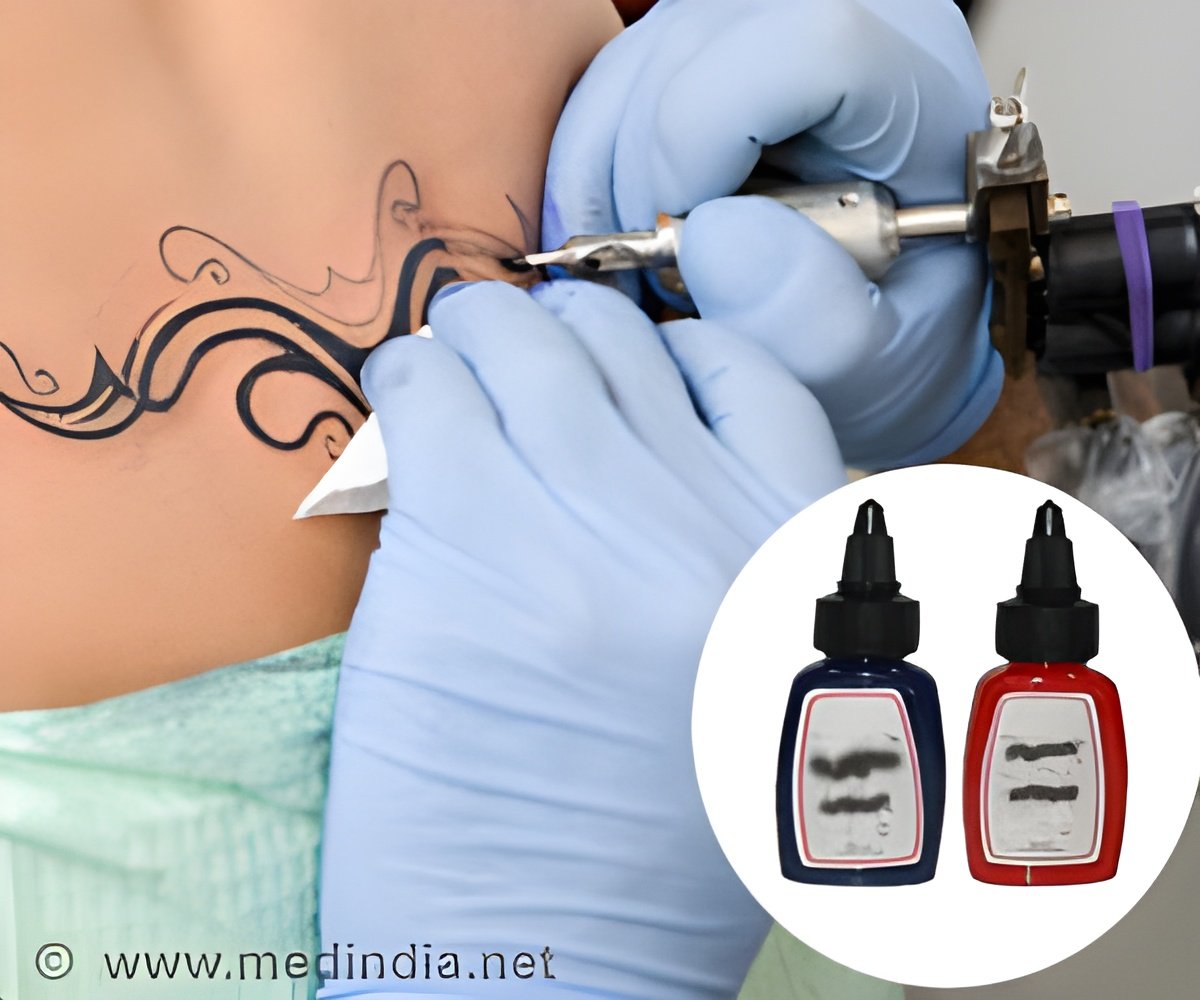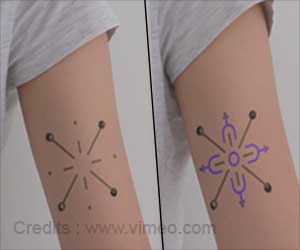
‘Tattooed skin affects the eccrine sweat glands and results in the risk of overheating the body. Small tattoos are likely to affect the overall body temperature regulation; however, large tattoos may have an impact on heat dissipation.’
Read More..Tweet it Now
Sweating helps regulate body temperature. Eccrine sweat glands are found throughout the body. They primarily produce water-based sweat to cool the body. Read More..
Tattoo process requires up to 3,000 skin punctures per minute, which could result in sweat gland damage.
Damage to the eccrine sweat glands would result in the risk of overheating of the body.
Previous research studies have found that there is a high concentration of sodium in the sweat of tattooed skin. This finding suggests a reduced function of the eccrine sweat glands.
The study consisted of volunteers with tattoos of at least 5.6 square centimeters in their upper or lower arms.
Advertisement
The participants’ internal body temperature, sweat rate and skin temperature were measured on both tattooed and non-tattooed areas of the same arm.
Advertisement
The team found that the tattooed and non-tattooed areas started to sweat at almost the same time due to the heat. This finding suggests that the nerve signals to the sweat glands function properly in tattooed skin.
The reduction in sweat produced in the tattooed skin may indicate that glandular damage occurred during the repetitive puncturing of the skin when a tattoo is applied.
Small tattoos are less likely to interfere with overall body temperature regulation. However, decreased sweating in tattooed skin may impact heat dissipation when tattooing covers a larger percentage of body surface area.
“The primary new finding in the current study is that peripheral (hair follicle-containing) skin of the arm containing tattoos has reduced sweat rates, and thus potential heat loss capacity, during (whole-body heating) compared to adjacent skin without tattoos,” the researchers wrote.
“These data indicate that the collateral effects of the tattooing process negatively impact eccrine sweat gland function and could be considered a potential long-term complication or side effect of this cosmetic procedure,” they added.
Source-Medindia











